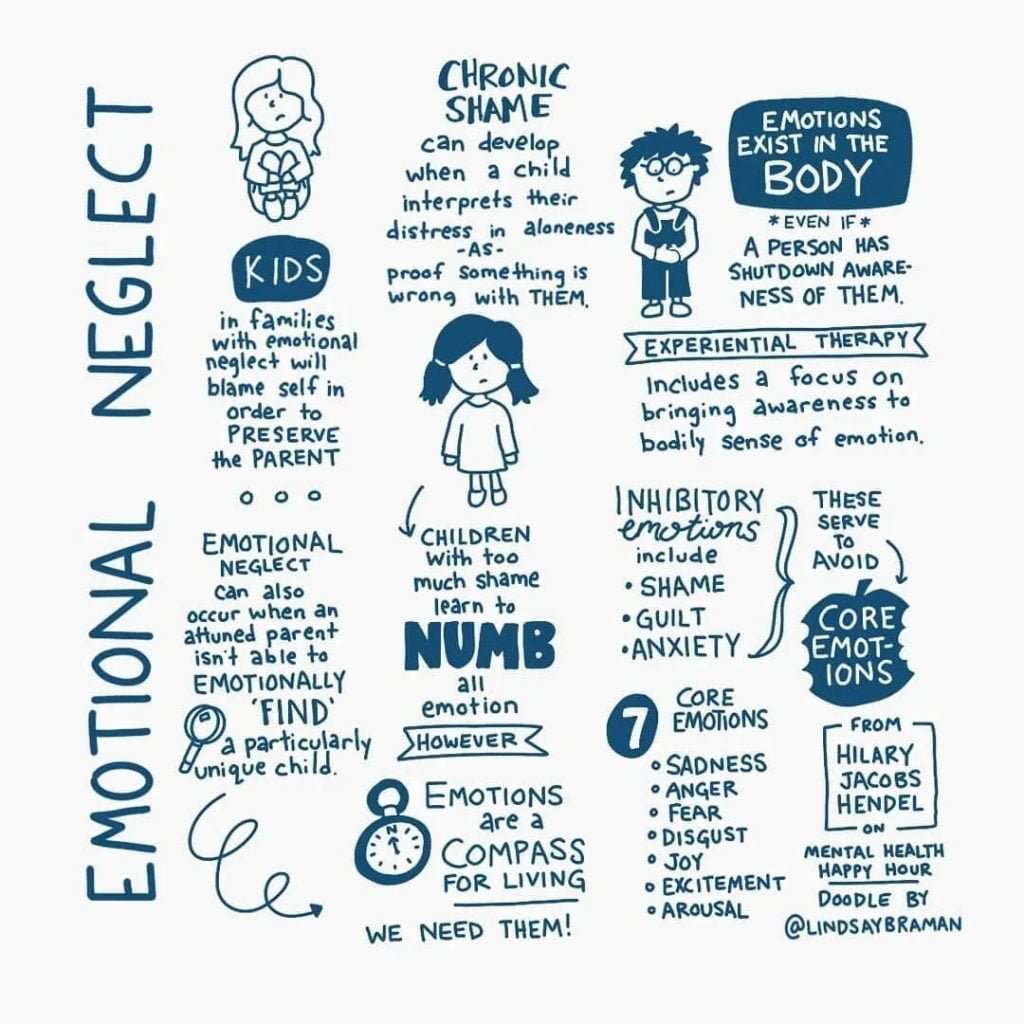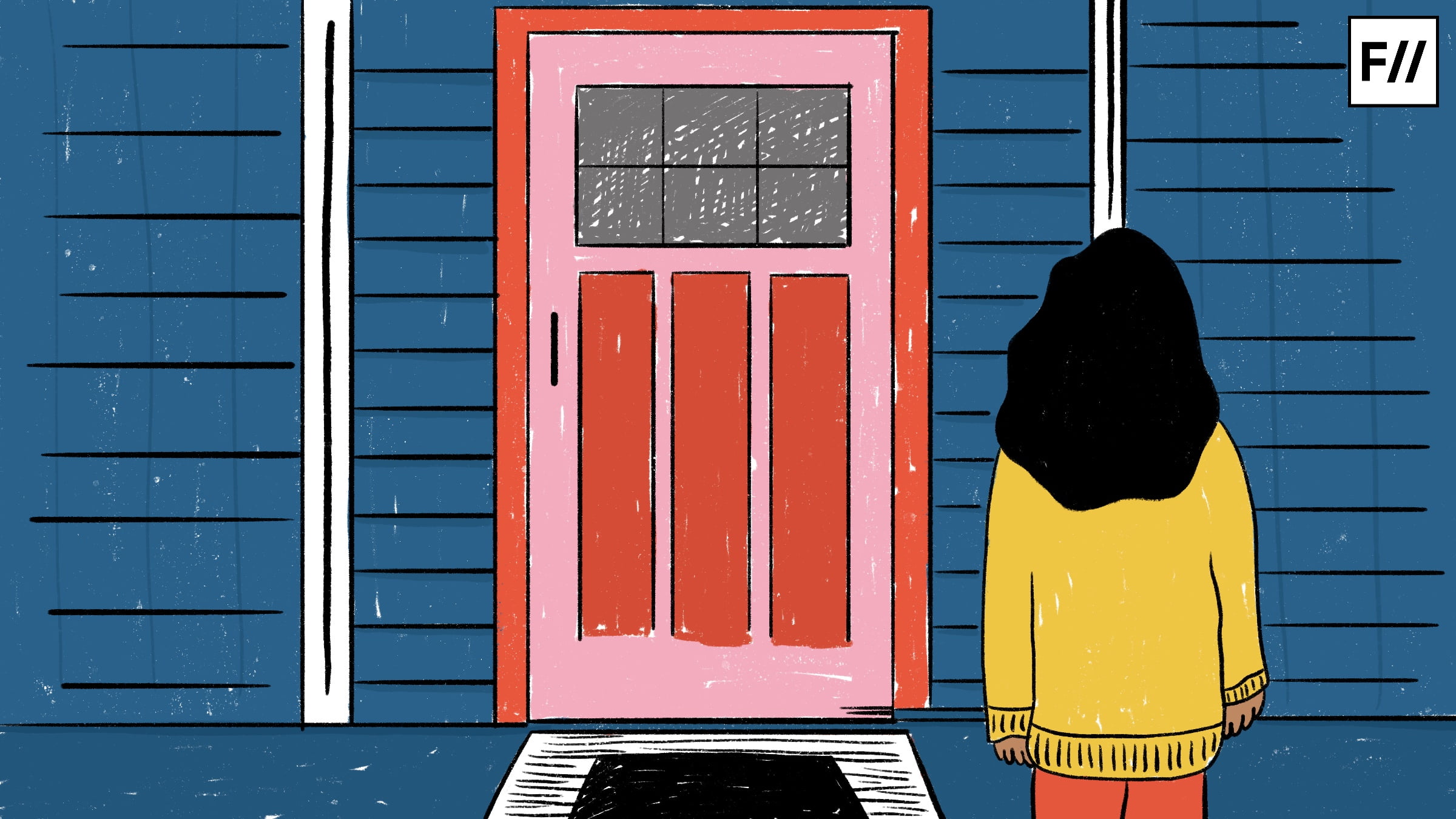Trigger Warning: Mentions of trauma
Trauma can be defined as an emotional response to an intense event in which the ability to cope can be dramatically undermined. Common causes of trauma in children include abuse (physical, sexual, or emotional), bullying, community violence, domestic violence, natural disasters, loss of loved ones, and neglect. In this article, let us see how emotional neglect in childhood can manifest in adult relationships.
Why Don’t Victims Easily Speak Up About Their Traumatic Experiences?
The question should be, “Why can’t individuals easily speak up about their traumatic experiences?”. Let us consider parental neglect, a subject relatively less talked about when discussing mental health issues. Many of us could have experienced parental neglect in our childhood days because of one or more factors or different reasons. As sad as this is, victims of neglect might not even realise, not even in their adulthood that neglect by parents in one’s childhood can be traumatic and have long-term effects. Why is that? Because it is only human to believe that one’s own experience is a state of normality first of all.
The relationship we have with our parents in our childhood does not limit itself to just the parent-child relationship, but tends to affect our love life and relationships in our adult life, too.
A study by Anxiety, Stress and Coping- An International Journal shows that people in their childhood might not know that they are growing up in a traumatic environment and in their adult life, they would not want to believe that they were victims, which is commonly seen among patients who have experienced trauma.
Also read: Does Trauma Have A Feminist Face?
“The conflict between the will to deny horrible events and the will to proclaim them aloud is the central dialectic of psychological trauma. “People who have survived atrocities often tell their stories in a highly emotional, contradictory, and fragmented manner which undermines their credibility and thereby serves the twin imperatives of truth-telling and secrecy. When the truth is finally recognized, survivors can begin their recovery. But far too often secrecy prevails, and the story of the traumatic event surfaces not as a verbal narrative but as a symptom.” , said Judith Herman.
Emotional Neglect As A Form Of Abuse
National Society for the Prevention of Cruelty to Children (NSPCC) categorised neglect in four forms: physical neglect, medical neglect, educational neglect, and emotional neglect. While abandoned children and children who grow up in poverty tend to experience neglect more often, even children who come from privileged families can experience neglect in the form of emotional neglect. This could be because of the parents being separated or divorced or alcoholism or mental health issues or simply poor parenting.
The Effects Of Emotional Neglect
According to the research conducted by National Research Council,Washington (DC) who have suffered emotional neglect from their parents tend to display some of the following characteristics. Have you noticed any of these traits in someone you know or in yourself?
– Striving to be overly independent
– Having difficulties in expressing their feelings
– Trying to suppress their emotions
– Being clueless about how to develop healthy relationships with anyone outside home as well
– Being overly critical of oneself and others
– Striving for perfectionism
– Lacking self-compassion
– Feeling ashamed or afraid of being needy
– Having difficulty in trusting anyone
– Fearing being rejected
– Afraid of seeking help
– Being afraid that others might be judgmental if they were honest about their feelings
Neglect And Attachment Styles
We tend to develop a certain style of attachment with our parents early on in life based on their parenting styles. The relationship we have with our parents in our childhood does not limit itself to just the parent-child relationship, but tends to affect our love life and relationships in our adult life, too. There are mainly four attachment styles, namely avoidant attachment, anxious attachment, fearful-avoidant attachment, and secure attachment. Secure attachment style is what forms when the relationship between parents and the child is healthy.
Also read: Dalit Trauma: Why It Is Important To Address Its Intergenerational Aspect
In anxious attachment style, an individual tends to value their relationships highly and always fear that the partner might not be as invested in the relationship as they are. In fearful-avoidant style of attachment, the individual wishes to be more intimate than they are but also carry with them a fear of trusting the partner, which can affect the relationship.
Secure attachment is considered to be the only healthy form of attachment, where an individual can value relationships and also easily be on their own.
In the avoidant relationship style, the individual tends to suppress their own emotions and not develop emotional intimacy with their partner. All these three styles of attachment are considered unhealthy. It is only in secure attachment that an individual would not suffer from unnecessary, invalid, irrational fears, and can trust the partner, express their own emotions freely, and also respect their partner. An article by The Attachment Project mentions that secure attachment is considered to be the only healthy form of attachment, where an individual can value relationships and also easily be on their own. Unfortunately, children who go through emotional neglect find it very difficult to develop a secure attachment with their partner.

Let us consider the example of X. X suffered from emotional neglect from both her mother and father from her childhood days. This led to her learning to be on her own from a very young age. She was always extremely skilled in basic life skills like cooking, doing the laundry, taking care of her own health, being self-disciplined and highly organised, etc. She never needed anyone and could always be on her own, certainly more independent than any of her peers. She was always admired by her peers, seniors, and juniors, but what none of them knew was that she deeply longed for company, support, and love.
She was made to believe during her childhood that it is not safe to trust anyone or seek understanding and even emotional support from anyone, owing to her parents’ neglect. So she always found it hard to develop friendships and find love. Once she found love, she took years to develop basic trust in her partner. When she did develop trust, she started depending heavily on the partner, hoping to fill the emotional void in her life using her partner.
Also read: The Need To Navigate Formal Legal Processes Through Trauma-Informed Lawyering
Her partner, who was clueless as to what made X behave so odd because he knew nothing about X’s past found it very difficult to meet her expectations. This made the partner withdraw from X, which X took as personal offense, reinforcing in herself all the fears she had earlier – that she was not good enough, she should not trust anyone, she was too difficult to deal with, it is dangerous to honestly express emotions. That was the only time she found true love, even convinced herself to develop trust, and the relationship suffered much.
Can Trauma Caused By Emotional Neglect In Childhood Be Cured?
Recovering from trauma is not easy at all. It takes a lot of time, effort, courage, and commitment. As mentioned earlier, trauma is an emotional response to an intense event. Memories of the event can keep coming up now and then, often interfering with one’s regular life, making daily life quite difficult. The memories may come up when you expect them the least, at work or when out with friends or in a classroom, and an individual might struggle much, trying to use the coping mechanisms they have developed, be they healthy or unhealthy.
It is important that an individual affected by trauma seeks the help of a psychiatrist and a counsellor qualified to offer counselling for trauma. Even if the traumatic events cannot be erased from one’s memory, a therapist specialised in trauma can help you deal with the symptoms and effects of trauma in a healthy way, thereby helping you lead a normal life. If you have suffered from emotional neglect and can see that it affects your adult relationships, talk to your therapist today.
Featured Image Source: Study.com
About the author(s)
Lakshmi Prakash is a psychotherapist and writer that loves behavioural sciences and everything out of syllabus. Annoying her is easy: tell her to conform. Befriending her is easy: crack silly jokes (the sillier your joke, the louder her laugh). She can be found on Facebook, Instagram and Twitter.




